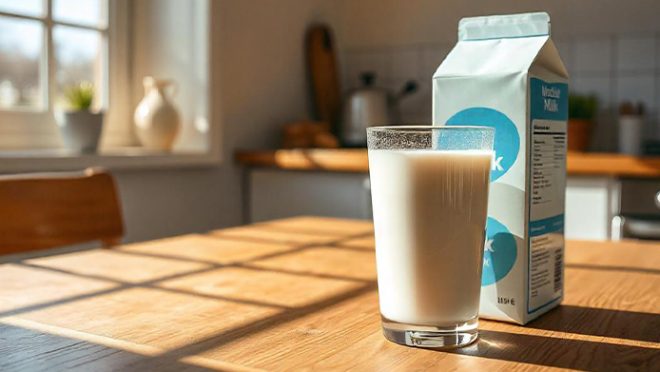A daily glass of milk may lower the risk of colon cancer
A daily glass of milk may lower the risk of colon cancer

A large-scale UK study has revealed that including the equivalent of a glass of milk of calcium in the daily diet reduces the risk of bowel cancer (also known as colon or rectal cancer).
Researchers analysed the dietary habits of more than half a million women over 16 years. They found that dark green leafy vegetables, bread, and calcium-fortified non-dairy milk also effectively prevent cancer.
The research also provided evidence that excessive alcohol consumption and eating processed meat increase the risk of bowel cancer.
In this study, more than 12,000 women were observed to have developed bowel cancer. Nearly 100 components of their diets were analysed.
Nutrition expert Professor Janet Cade said, “The research has shown that overall dietary habits can influence the risk of bowel cancer.”
Cancer charities say that the most effective ways to reduce the risk of bowel cancer are maintaining a healthy and balanced diet, maintaining a healthy weight, and not smoking.
The University of Oxford and Cancer Research UK research stated that dairy foods “probably” play an essential role in reducing the risk of bowel cancer.
The study found that consuming an extra 300mg of calcium daily, equivalent to a large glass of milk, reduces the risk of bowel cancer by 17%.
The lead researcher, Dr Karen Papier, said, “This study highlights the positive role of dairy foods, especially calcium, in preventing bowel cancer.”
Breakfast cereals, fruits, grains, carbohydrates, fibre, and vitamin C also slightly reduce the risk of bowel cancer.
The new research also found that a large glass of wine (20g of alcohol) daily increases the risk of bowel cancer by 15%. Also, eating just 1 ounce (equivalent to a slice of ham) of processed meat daily increases the risk by 8%.
It is well known that calcium is crucial for strong bones and good dental health. However, recent research suggests that it also reduces the risk of certain cancers.
Milk, yoghurt, and cheese are rich in calcium. Outside of dairy foods, calcium can also be found in soya and rice drinks, white bread, nuts, seeds, and lactose-free milk.
The number of people affected by bowel cancer is increasing. Elderly people are generally more affected by bowel cancer.
However, the rate of this cancer is also increasing among younger generations under 50, the specific reasons for which are not yet known. Experts say that unhealthy eating habits and obesity are among the possible causes.
Symptoms of Bowel Cancer:
- Changes in bowel habits, such as looser stools, frequent bowel movements, or constipation.
- Bleeding from the rectum or blood in the stools.
- Unexplained weight loss.
- Unexplained tiredness or shortness of breath.


